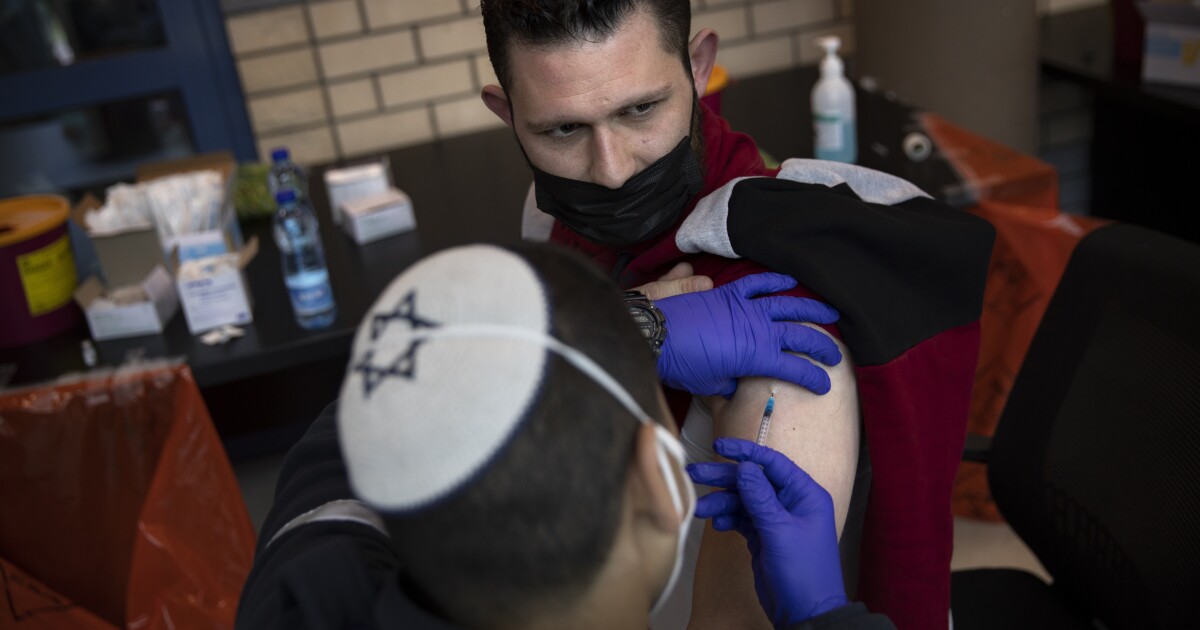In clinical trials conducted last fall, the vaccine developed by Pfizer and BioNTech proved 95% effective in preventing COVID-19 symptoms.
The question was whether these and other vaccines would also perform once they are widely used.
A new study with more than half a million people vaccinated in Israel strongly suggests that the answer is yes.
Compared to people who did not receive the Pfizer BioNTech vaccine, those who were vaccinated were 94% less likely to get sick, according to the study published in the New England Journal of Medicine on Wednesday. They also had much lower mortality rates, hospitalization and – among those tested for the virus – infection.
Josh Michaud, a global health expert from the Kaiser Family Foundation who was not involved in the study, calls it an ‘important milestone’.
“Until now, we have had to rely on distributed small-scale reports and non-peer-reviewed findings for a look at how effective COVID-19 vaccines are in the real world,” he said.
The research did not address the critical question of whether vaccination prevents someone from transmitting the virus.
Clinical trials with different vaccines have focused on whether participants develop symptoms, and this leaves open the possibility that even those who are protected against diseases may still become infected and unknowingly infect others.
The new study did not systematically test people for the virus, so there was no way to measure how many people were infected without symptoms.
Among those who were tested – either because they became ill or wanted to ensure that they were not infected – those who received both doses of the vaccine were 92% less likely to get a positive result than members of a control group vaccinated.
Dr Noam Barda, one of the authors, said that research is now being done to thoroughly test vaccinated people to definitively determine whether vaccination prevents infection and transmission.
Dr. Carlos del Rio, a researcher at Emory University who was not involved in the study, said for the time being that it is very encouraging to transfer the high efficacy data from clinical trials to the real world.
Although controlled clinical trials are the best way to test the effectiveness of a new vaccine, it is far from a perfect predictor of how a rollout will go – especially one that is so urgent and fraught with challenges.
Vaccine recipients sometimes do not adhere to the prescribed timelines to get their shots. Vaccines should be sent long distances and kept cold. Many things can go wrong and undermine effectiveness.
The new study uses data on 596,618 people who received the Pfizer BioNTech vaccine between December 20 and February 1. Another 596,618 who were not vaccinated were selected for a control group based on age, gender, environment, pre-existing conditions, and other factors that may affect someone’s likelihood of contracting the virus or becoming ill.
All participants were members of Clalit Health Services, Israel’s largest healthcare organization.
Even after just one dose, the vaccinated group fared much better than their peers. They were 57% less likely to get sick and 74% less likely to be hospitalized. After the second and last dose, the figures rose to 94% and 87%.
Two to three weeks after the first shot, the vaccine was 72% effective in preventing death.
Jennifer Nuzzo, an epidemiologist at the Johns Hopkins Bloomberg School of Public Health, said the findings “should give us good hope that we can use vaccines to prevent hospitalizations and death, which can effectively ward off the virus.”
The vaccine worked equally well in all age groups.
Nicholas Davies, an epidemiologist at the London School of Hygiene and Tropical Medicine who was not involved in the study, said a high level of protection for the elderly – and only slightly lower protection for people with multiple chronic health problems – “gives reason to be optimistic about the effectiveness of the vaccine in the most vulnerable population.”
The authors of the study said that they are also encouraged that the occurrence of coronavirus variants does not have a major impact on the efficacy of the vaccine.
The clinical trials were performed when most circulating viruses were in good agreement with those used to design the Pfizer-BioNTech vaccine. The new study did not look at which variants were the most common among the participants, but B.1.1.7 – the so-called British variant – accounted for a large proportion of the overall cases in Israel by the end of the study period.
Israel is far ahead of most other countries in its vaccination campaign, with more than half of the population vaccinated.
